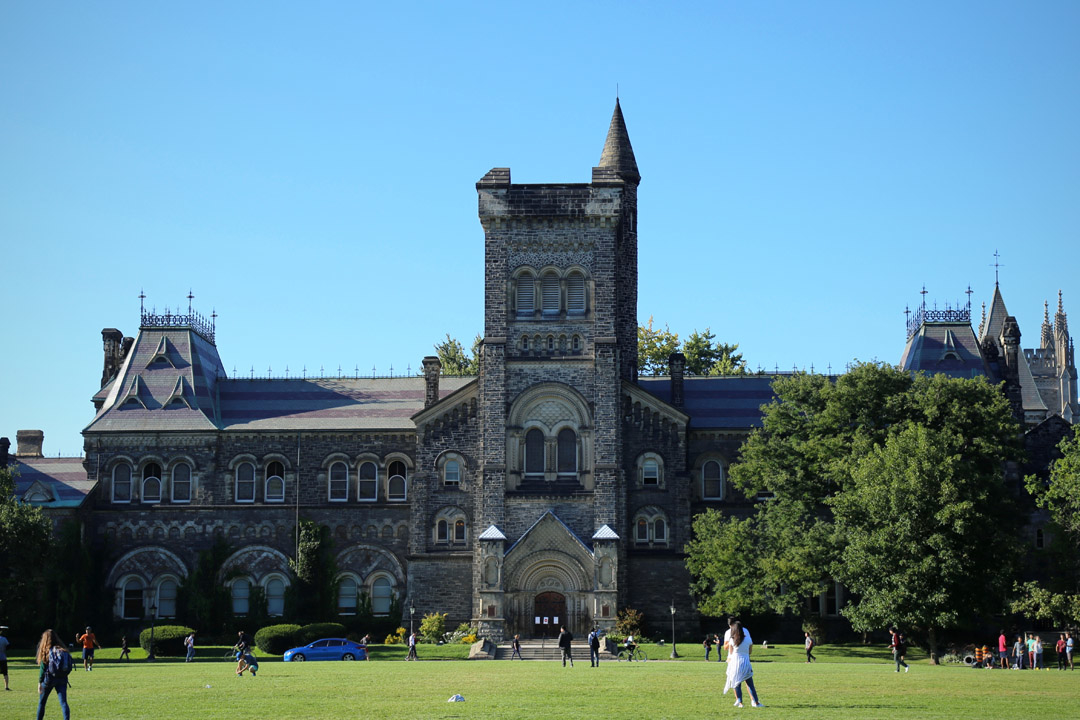On August 11, the University of Toronto announced that it will mandate self-declaration of COVID-19 vaccination status for anyone present on any of its three campuses during the fall semester.
This makes U of T the fourth post-secondary institution to announce a vaccine requirement, following Seneca College, the University of Ottawa, and Western University.
Previous vaccination policy
U of T had announced in July that it would require full vaccination for anyone who participates in certain activities deemed high risk, like sports and music instruction, and for students moving into residence. A U of T spokesperson clarified in an email to The Varsity that anyone in these groups “will receive direct communications with information about how to provide their vaccination details or how to apply for an exemption.”
They added, “We are currently considering other areas where this requirement may be introduced.”
Now, U of T has clarified that vaccines will be a “requirement” for anyone visiting campus, though it will still provide the alternative of regular testing for those who declare that they are not vaccinated or choose not to say. These individuals must take rapid-screening COVID-19 tests twice a week and demonstrate a negative result within the 72 hours before coming to campus, on top of any public health measures.
However, several U of T faculty members criticized the announcement on social media, noting that the policy does not require proof of vaccination status.
Patrick Keilty, an associate professor at the Faculty of Information, tweeted about the announcement, “Without proof, it’s not a requirement. UofT should be ashamed of its propaganda campaign.”
This is deeply misleading. I am disappointed to hear @UofT will not require proof of vaccination. Without proof, it's not a requirement. UofT should be ashamed of its propaganda campaign. https://t.co/A6DdrgsnC4
— Patrick Keilty (@PatrickKeilty) August 12, 2021
Although the recent announcement describes U of T’s vaccine policy as mandatory vaccination, anyone visiting campus was already required to self-declare their vaccination status under the existing policy.
In a letter to the community, President Meric Gertler added that U of T “will take additional measures if conditions change in the fall and winter ahead.”
In response to the criticism that the policy does not require proof of vaccination status, a U of T spokesperson wrote to The Varsity that “In the absence of a legal framework and supporting tools like a digital vaccination record or passport, we are requiring self-declaration with additional safety measures like rapid screening for those who are not fully vaccinated.”
“The province has not made vaccinations mandatory for any sector, including health-care workers,” they added.
Advocacy from unions
Prior to this announcement, faculty, students, and U of T groups had all challenged the university’s reluctance to implement mandatory vaccination and questioned whether its plans would go far enough to keep community members safe.
Organizations like the Canadian Union of Public Employees (CUPE) Local 3902 and the University of Toronto Faculty Association (UTFA) have been pushing for the university to impose stricter vaccine requirements, although CUPE 3902 has stated that it would not necessarily support a vaccine mandate. In addition, they have both pushed for stronger COVID-19 measures like capacity limits to improve learning and teaching conditions.
Before the recent announcement, Amy Conwell, the chair of CUPE 3902, wrote that if the university wouldn’t mandate vaccines, they would need to implement other safety measures. This would include imposing capacity limits in “congregate settings on campus,” such as classrooms and washrooms.
The University of Toronto Faculty Association (UTFA), which has been working with CUPE 3902 and other unions to advocate for safety measures at U of T, added that the university should conduct assessments of all spaces on campus to determine whether they would be suitable for safe learning.
In an email to The Varsity, Andria Bianchi, an assistant professor at the Dalla Lana School of Public Health who researches the ethics of public health policies, previously wrote that an institution’s decision on whether to require its members to get vaccinated would likely depend on a number of factors, such as its mandate and amount of space. However, she noted that in situations like these, communities have a responsibility to protect those who are most vulnerable.
“I do trust and hope that the University is making a well-reasoned decision that is based on good science,” Bianchi wrote.
Editor’s Note (August 12): This article has been updated to better reflect that the vaccine requirement is based upon an existing policy of voluntary self-declaration. A previous version of this article also stated that CUPE 3902 had been in support of a vaccine mandate, which they were not. The Varsity regrets the error.
Editor’s Note (August 12): This article has been updated to include comment from U of T.


